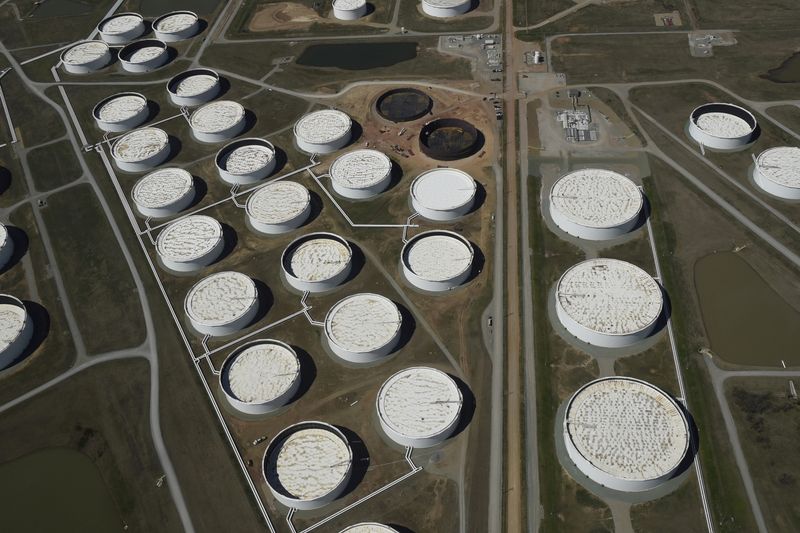By Stephanie Kelly
NEW YORK (Reuters) -Oil prices sank on Thursday, reversing earlier gains in a volatile session after a report that Saudi Arabia's oil output will soon surpass 10 million barrels per day for the first time since the outset of the COVID-19 pandemic.
The report, from Saudi-owned Al Arabiya TV, came after the nation, along with other Organization of the Petroleum Exporting Countries and its allies, agreed to stick to previously agreed upon production increases.
Brent crude fell $1.45, or 1.8%, to settle at $80.54 a barrel. Earlier, Brent rose to $84.49 a barrel. U.S. West Texas Intermediate crude fell $2.05, or 2.5%, to settle at $78.81 a barrel, well off the session high of $83.42.
Since Tuesday's close, Brent and WTI have fallen by about 5% and 6%, respectively.
The Organization of the Petroleum Exporting Countries and allies, collectively known as OPEC+, agreed to stick to plans to raise oil output by 400,000 barrels per day (bpd) on a monthly basis, sources said, despite calls from the United States for extra supply to cool rising prices.
Saudi Arabia has already dismissed calls for speedier oil supply increases from OPEC+. But the Al Arabiya TV report said the Saudis will reach 10 million bpd in December.
Oil stocks will see "tremendous" builds at the end of 2021 and early 2022 because of slowing consumption, Saudi Energy Minister Prince Abdulaziz bin Salman said on Thursday.
Oil prices, which had previously been up by more than $2 per barrel, began paring gains as OPEC+ met.
"A large (speculative) position was loading up" before OPEC, said Bob Yawger, director of energy futures at Mizuho.
Yawger said traders then were inclined to sell and take profits rather than risk that the market could slip further as the White House calls for increased output.
"They preferred to book profit than look to get burned by any Biden counterpunch," Yawger said, referring to U.S. President Joe Biden.
The White House on Thursday criticized a decision by top oil producers to keep oil output steady, saying OPEC and its allies appeared "unwilling" to use their power to help the global economic recovery.

Top producers Saudi Arabia and Russia are confident higher oil prices will not elicit a fast response from the U.S. shale industry, OPEC+ sources said. U.S. companies have pledged to preserve capital and prioritize investor returns.
Still, several large oil companies plan to increase output or shale spending next year.